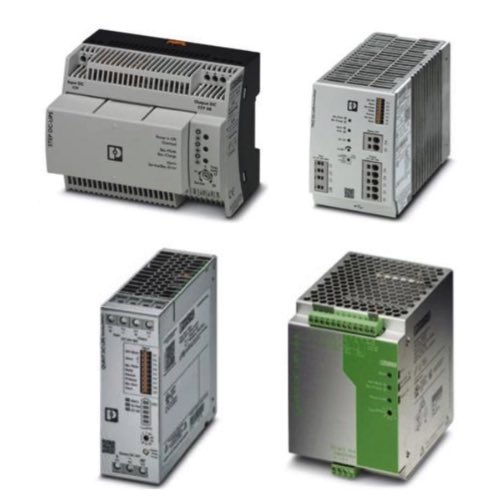Phoenix Contact DC UPS

Phoenix Contact DC UPS systems are designed to deliver reliable and uninterrupted backup power for critical devices operating on direct current. These systems are commonly used in industrial automation, telecommunications, and control applications where continuous DC power is essential to maintain system operation and prevent data loss or process interruptions. By supplying backup power directly to DC loads, these UPS systems help ensure stability during power outages or voltage drops.
Phoenix Contact DC UPS units incorporate advanced battery management systems that regulate charging and discharging processes to optimize battery performance and service life. Controlled energy storage and release help maintain operation within safe voltage and current limits, improving reliability and reducing maintenance requirements. These systems support a wide range of energy storage options and backup runtimes, allowing them to be tailored to specific application needs.
Built for harsh industrial environments, Phoenix Contact DC UPS systems are designed to operate reliably under temperature extremes, electrical noise, vibration, and other demanding conditions. They integrate easily into existing power architectures and can be mounted close to the load to provide localized backup power. Integrated protection features, including overvoltage, undervoltage, overcurrent, and short-circuit protection, help safeguard both the UPS system and connected equipment.
FAQs
Q: What are Phoenix Contact DC UPS systems used for?
Phoenix Contact DC UPS systems are used to provide uninterrupted backup power for critical DC-powered devices in industrial automation, control, and telecommunications applications.
Q: How does a DC UPS differ from an AC UPS?
A DC UPS provides backup power only to DC-powered devices downstream of the unit, while an AC UPS protects both AC and DC equipment supplied by downstream power supplies. DC UPS systems are typically more compact and well suited for DC-focused control panels.
Q: What is the role of battery management in a DC UPS?
Battery management systems control charging and discharging processes to optimize battery performance, extend service life, and ensure safe operation within defined electrical limits.
Q: Are Phoenix Contact DC UPS systems suitable for harsh environments?
Yes, they are designed for industrial environments with exposure to vibration, temperature variations, and electrical noise, making them suitable for factories, plants, and outdoor installations when properly enclosed.
Q: What protection features are included in Phoenix Contact DC UPS systems?
These systems typically include protection against overvoltage, undervoltage, overcurrent, and short circuits to help protect both the UPS and connected loads.
Why Buy Phoenix Contact DC UPS Systems from RSP Supply
RSP Supply offers a wide range of Phoenix Contact DC UPS systems designed for dependable backup power in industrial applications. Our selection supports flexible installation, reliable battery management, and robust system protection. Customers rely on RSP Supply for trusted Phoenix Contact solutions, technical expertise, and components that help maintain continuous operation in critical DC-powered systems.

